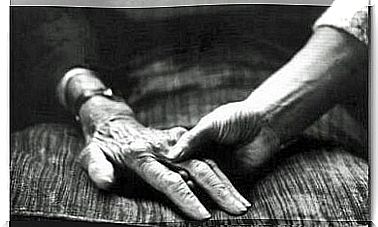Counseling Skills For Psychotherapy

Counseling skills are essential for therapists. Therefore, psychologists and psychotherapists must implement these skills during their therapy sessions. They learn this the same way they learned psychological techniques.
The concept of a therapeutic relationship originated from the psychodynamic model that Bordin introduced several decades ago. It is part of essential changes in any therapeutic model. So it has to be present throughout the treatment if you want it to really work.
There are three components in a therapeutic relationship, namely:
- the link between a patient and his therapist, determined by the emotional tone and the mutual cooperation
- the agreement on the objectives they should achieve
- agreement on the tasks required to achieve those objectives
For example, certain authors, such as Carl Rogers and his humanistic psychology, suggest that the factors that should be present in all therapies are the following:
- authenticity and congruence
- unconditional acceptance of a patient
- empathy for the patient
Rogers thus believed that these components are necessary for any change. In addition to the essential collaboration, other skills are also needed that benefit the creation of a therapeutic relationship.
One of the most important skills a therapist can have is the ability to develop a good relationship or understanding with the patient.
Important Counseling Skills of Therapists

To study the variables to consider when using counseling skills, the study that Sloane et al. conducted in 1975 was on the importance that patients place on these variables. Patients therefore consider the following factors to be decisive for the success or failure of a therapy:
- the personality of a therapist
- the ability to listen
- the way in which a therapist gradually encourages a patient to do what he thinks he cannot do
- the ability to speak in a way a patient understands
- the help the therapist can provide to a patient so that they understand themselves
Other abilities
Other authors, such as Ackerman SJ and Hilsenroth MJ (2003) have studied the publications on this topic. They suggested that the characteristics of therapists best suited to promote healthy collaboration included the following:
- Flexibility. The way a therapist accepts and adapts his way of communicating to the situation and the patient in front of him.
- Experience. How the therapist demonstrates clinical experience.
- Honesty. Does the patient believe the therapist is sincere?
- respect. Does the therapist respect the patient’s values and how he expresses and communicates them in general?
- Loyalty. The therapist is reliable.
- Self confidence. The patient feels that he knows what he is doing.
- The therapist shows an interest in a patient and his problems.
- Attention. The expert is aware of what is happening during the session. That is, of the patient’s verbal and non-verbal expressions.
- Close proximity. A patient feels that the therapist is close to him.
- Warmth. The therapist is friendly and nice.
- candor. The therapist then understands and accepts other points of view.
At this point, you can conclude that there is a lot of information about the importance of a therapist’s characteristics when it comes to the results of a particular treatment.
Certain studies show that the effectiveness of a treatment is significantly greater and that it lasts less when these strategies are used. The opposite happens when it doesn’t.
What Happens During a Therapy Session?

Some studies show that the first session, when a patient and a therapist meet for the first time, is decisive for the majority of patients. For example, the therapists who can link patients to continuous treatment are verbally stronger and show more diagnostic skills than therapists with a lower link.
If you isolate factors beyond treatment, such as patients’ economic capabilities or the distance they have to travel to attend the session, most experts agree on two reasons that explain dropouts:
- On the one hand, these are the personal characteristics of a therapist and a lack of interest in the proposed intervention approach.
- On the other hand, the patient believes that they have improved well enough to decide not to continue with the therapy.
Studies suggest that a therapist’s verbal skills can also influence the ultimate success of a treatment. The number of dropouts is therefore lower for therapists who are verbally strong.
Conclusion on counseling skills
So it is very important that therapists learn counseling skills in therapy. Having a good knowledge of their field is not enough, they also need to know when to put it into practice, how to present it and how to adapt it from patient to patient. It is a precise job where training helps a lot.









